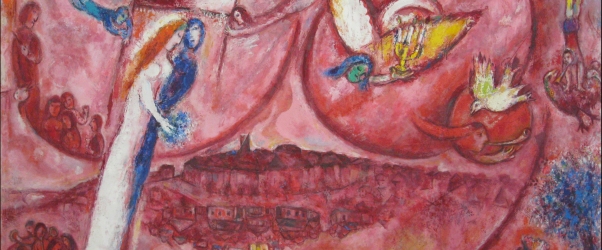Holy Father, Synodal Fathers, ladies and gentlemen, if at least married couples found light and support with the clergy it would already be a great encouragement! Many times contradictory advice aggravates their confusion. We ask, the Magisterium to give the Fathers and faithful the great lines of a pastoral pedagogy, which helps to adopt and observe the principles agreed by Humanae Vitae.
Here is the text of their remarks.
In contrast to the Catholic view of marriage expressed in Arturo and Hermelinda's concern for "openness to life" and the way in which marriage serves to "sanctify," here's another take on marriage from this human interest piece that was up on AOL the other day. I read it against my better judgment and then spent way too much time wondering why I had bothered to read it, but it got a lot of comments. Families and marriages must be important to people.
To save you the possible misery of actually reading this piece, one Kama Shockey, a military wife, decided to move herself and her young daughter out of their remote location in southern California, where her often-deployed husband was posted, to go to Flagstaff, Arizona 400 miles away. This was so she could be in a "thriving community" rather than be sad on post. That I'm aware, this isn't such a highly unusual decision nor is it a particularly bad one. What struck me as weird was not the decision itself, but what this young wife and mother understood a family to be.
Kama talks about her family as if they're a casual affiliation of two adult people with separate lives running on different tracks. These two people are entitled to be happy, to "feel right." These two adults happen to have a daughter who is also entitled to be happy. Curiously, the daughter's path to happiness sounds an awful lot like her mother's path to happiness, despite what must be a significant age difference. Kama fancies herself quite the post-modern, liberated and empowered woman, very wrapped up in her own feminine fulfillment. She says:
I was teaching my daughter that no matter what her partner does in life, she can support him (or her) while also making her own goals, her own career, her own life a true priority. She will never be too old, too settled, too domestic to start over if what she's doing doesn't feel right. She was learning to define her own life, and realizing her mom isn't obligated to stay in a community of women whose only thing in common is the fact that their husbands were all gone at the same time.
Arturo and Hermelinda, our Brazilian Catholic couple testifying about marriage at the Synod on the Family, have been married for 41 years. I hope Ben and Kama last even half that long, but I doubt it. Kama seems a bit too happy that Ben is sitting alone on his half of the matching furniture watching "bad DVDs" while she's doing what feels right. According to Kama, Ben knows this is all okay because he's a man. Really. Hopefully, as a man, Ben will wake up soon enough to discover his unique role as provider, protector and male in the marriage.
I console myself with the possibility that Kama and Ben are not real people, that their tale is just a made-for-internet story. But even if Kama and Ben aren't real, there are so many other married couples just like them who are: single women who labor under the illusion that they can raise a child alone, that their children don't need fathers; young couples who first have a baby, then move in together and then, maybe, marry "later;" men whose manly roles in the family have been denigrated and shredded to the point of unrecognizable; already-married couples whose commitment flags when they decide they're no longer "happy;" and those who view marriage not as mutual fulfillment with sacrifices but as individual fulfillment that's fun and easy. Kama and Ben are, lamentably, poster children for the current state of marriage and the family. They depict only too well what one of the Synod's cardinals has called the "momentary cult of well-being." ( read here and here).
I have to admire the likes of Arturo and Hermelinda as they and other couples testify at the Synod and articulate to the bishops and other assembled some of the specific ways in which Church teaching might help the laity to understand and talk to others about the truth of marriage and family so we might work to correct some of the distortions the culture imposes upon us.

